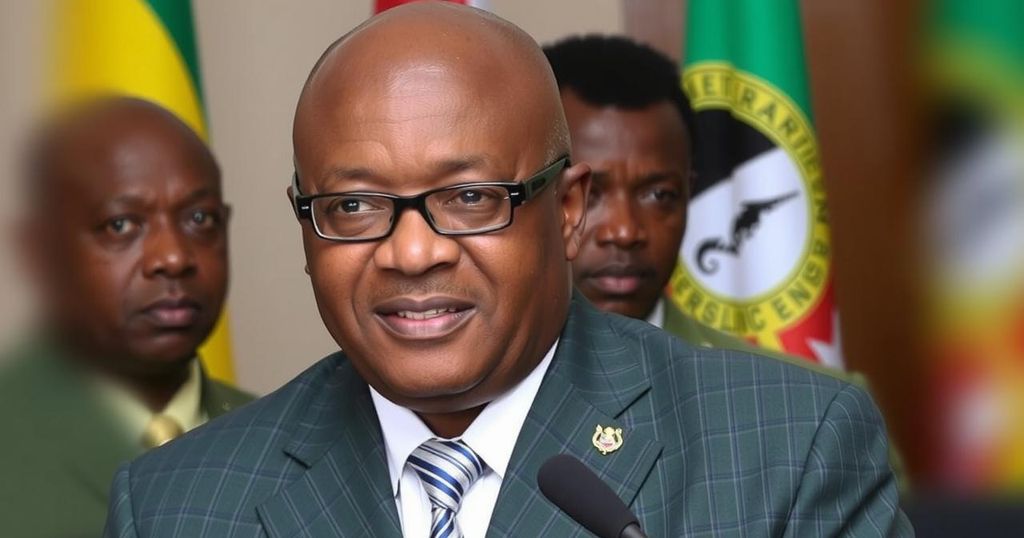Uganda’s mission in eastern DRC has shown mixed results: it has pushed back ADF rebels and improved security in some areas, but also faces allegations of supporting rival factions. While the ADF’s operational scope has shifted, questions remain about Uganda’s commitment to eradicating the group. The mission serves economic interests as well, particularly in safeguarding trade routes and projects, raising concerns about Uganda’s true motives in the region.
Uganda’s military mission in the eastern Democratic Republic of Congo (DRC), initiated three years ago to combat the Allied Democratic Forces (ADF), has produced mixed outcomes. Operation Shujaa, or “bravery”, has effectively pushed back ADF rebels from significant strongholds, leading to improved security conditions in certain areas. However, allegations have emerged suggesting Uganda is providing clandestine support to another rebel faction, raising concerns about its true intentions in the region.
Since the start of Operation Shujaa, the ADF has been forced out of key locations, including areas surrounding the city of Beni, where local life has generally improved. Reports indicate that schools have reopened, and civilians have begun to feel somewhat safer, despite ongoing violence. Nevertheless, the ADF’s operational footprint has shifted, with the group extending its attacks into previously safe regions, thereby maintaining its lethal potential.
While Ugandan forces have executed operations against the ADF, critics point out that these efforts might prioritize pushing the threat away from Uganda’s borders rather than eliminating it entirely. Allegations have surfaced regarding Uganda’s covert backing of the M23 rebel group, further complicating regional dynamics. Critics assert that military success has been concentrated near Uganda’s border, and questions of Uganda’s commitment to eradicating the ADF persist.
Economically, Uganda’s mission intertwines with broader interests, allowing the country to safeguard its strategic economic projects and influence trade routes, particularly in gold exports, which are vital for both Uganda and Rwanda. As Uganda navigates the delicate balance of power in the region, its actions appear more driven by self-interest than a genuine commitment to peace and stability in eastern DRC. As Uganda adapts its approach to the evolving landscape, it must address its domestic challenges while maintaining crucial economic ties with the DRC and countering Rwandan influence.
In summary, while some military successes against the ADF have been noted, the overarching implications of Uganda’s involvement in the DRC raise crucial questions about the nation’s ultimate objectives in the volatile region. The combination of militaristic efforts and economic motives risks perpetuating the cycle of conflict rather than fostering lasting peace.
Brigadier General Felix Kulayigye stated, “Their ability to cause harm has been degraded” in reference to the ADF. Moreover, Belgian researcher Kristof Titeca remarked, “Kampala adjusts its strategy depending on the context, but the constant is the preservation of its own interests.”
As the situation continues to evolve, Uganda’s dual role as both an aggressor and a supposedly stabilizing force in eastern DRC stands under significant scrutiny, compelling observers to question the sincerity of its motives in these operations.
The involvement of Uganda in the DRC is a part of the broader context of instability in eastern Africa, characterized by multiple armed groups, including the ADF, which has ideological ties to the Islamic State. Uganda’s military intervention aimed at securing its borders and addressing threats from these groups raises complex questions regarding national interests, regional alliances, and the humanitarian consequences of armed conflict. Uganda’s historical role in the region, particularly in relation to Rwanda and the long-standing conflicts in the DRC, adds layers of complexity to its current operations.
The examination of Uganda’s military intervention in the DRC reveals significant implications for both security and economic interests. While operational successes against the ADF are acknowledged, the overarching questions of Uganda’s intentions and its alleged support for rival rebel factions pose critical concerns about regional stability. As Uganda navigates the dual responsibility of engaging militantly while ensuring economic access, the necessity for clarity and commitment to peace in the DRC is imperative.
Original Source: www.rfi.fr






